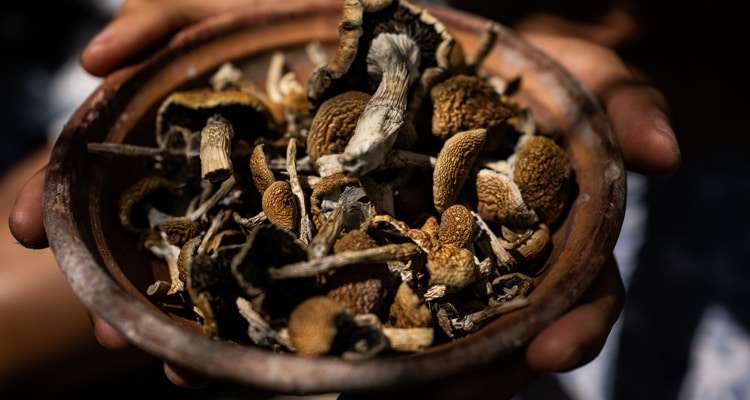Chinese researchers have found that psilocybin, the psychoactive component in several hundred types of mushrooms, could be useful in restoring fear extinction in individuals suffering from post-traumatic stress disorder (PTSD).
The research team led by Dr. Liming Zhang from Beijing Key Laboratory of Neuropsychopharmacology and Dr. Guyan Wang from Capital Medical University hypothesized that psilocybin could help treat PTSD by increasing neuroplasticity in the hippocampus. The findings are published in the Chinese Medical Journal.
The findings
“Our study is the first to investigate the long-term effect of psilocybin on the facilitation of fear extinction and to assess whether this effect is mediated by the promotion of hippocampal neuroplasticity,” Dr. Wang said in a statement.
Psilocybin is already considered a “breakthrough” treatment for sufferers of depression, particularly treatment-resistant depression where two or more pharmaceutical treatments fail to relieve symptoms. Depression frequently occurs alongside PTSD. Multiple studies have shown that psilocybin promotes neuronal growth and the formation of new synapses, which could be responsible for its antidepressant effects.

PTSD symptoms can be persistent and debilitating, making them difficult to treat. This is due to PTSD impairing the fear extinction process. Previous studies have found that patients with PTSD have a smaller hippocampus, a region of the brain, than healthy people. As this region is involved in memory formation and retrieval, improving hippocampal neuroplasticity may restore fear extinction in PTSD patients.
To test their theory, the research team induced a sound-based fear conditioning (FC) in mice and studied their freezing time in response to the induced fear. The mice were conditioned to freeze in fear whenever they heard a 5 kHz tone. Some of these fear-conditioned mice were administered a single dose of psilocybin and given fear-reduction training. The researchers found that the psilocybin-treated mice exhibited significantly improved fear extinction compared to the untreated ones.
The team found that the hippocampi of psilocybin-treated mice had dendrites similar to those of control mice, whereas untreated mice exhibited a sharp decline in dendritic complexity and density. Furthermore, psilocybin reversed the decline in proteins associated with neuroplasticity and fear extinction.
Currently, only two drugs are approved for treating PTSD, both with limited efficacy and severe side effects. The new study could help lead to the development of new treatments.
MDMA and PTSD treatment
PTSD treatment has largely been explored in trials with MDMA (3,4-Methylenedioxymethamphetamine), also known as the street drug ecstasy or molly.
In a phase 3 clinical trial, which is the final stage of testing before a drug is approved, MDMA-assisted psychotherapy was shown to be effective in reducing symptoms of PTSD. The trial involved 90 participants with severe PTSD who had not responded to other treatments. The participants were randomly assigned to receive either MDMA or a placebo in combination with psychotherapy.
After two months, the group that received MDMA showed a greater reduction in symptoms compared to the placebo group. After one year, 67 percent of the MDMA group no longer met the criteria for a diagnosis of PTSD, compared to 32 percent in the placebo group.

This study builds on earlier research that showed promising results for MDMA-assisted psychotherapy in treating PTSD. In a phase 2 clinical trial, 61 percent of participants no longer met the criteria for PTSD after two months of treatment. In addition, the improvement was sustained over a long-term follow-up period.
The potential of MDMA-assisted psychotherapy to treat PTSD has generated a lot of excitement in the mental health field. In 2021, the US Food and Drug Administration granted “breakthrough therapy” status to MDMA-assisted psychotherapy, which means that it will receive expedited review during the approval process. If approved, MDMA-assisted psychotherapy could offer hope to millions of people around the world who suffer from PTSD.
The new study says there’s reason to add psilocybin to that list.
“Collectively, there is increasing evidence suggesting that psilocybin has the potential to treat PTSD,” said Dr. Wang. “Our findings suggest promising potentials of psilocybin for the treatment of PTSD at the preclinical level and provide impetus for future clinical studies.”
Related on Ethos:


